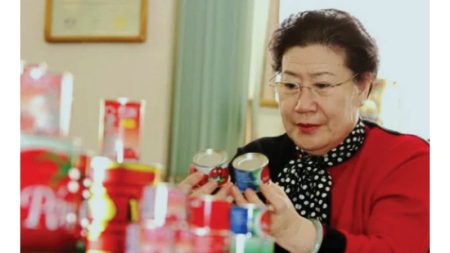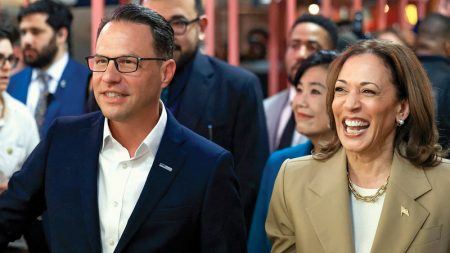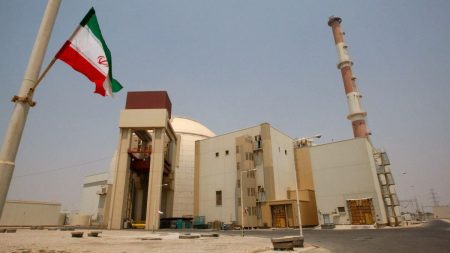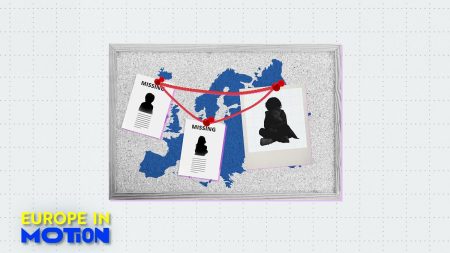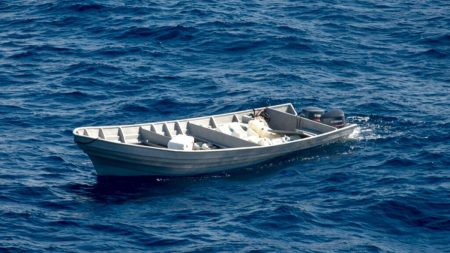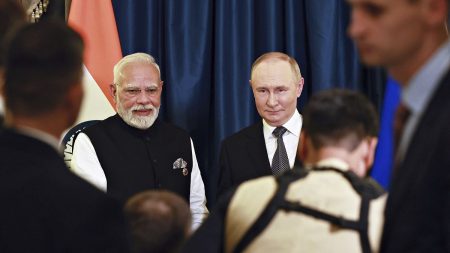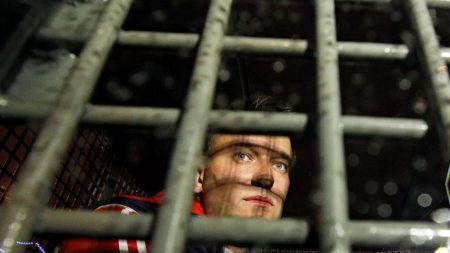Summarize this content to 2000 words in 6 paragraphs in Arabic
“Everyone who is in the occupied territories is a hostage of the Russian regime,” Ukrainian journalist and human rights activist Maksym Butkevych, who spent over two years in Russian captivity, told Euronews.
ADVERTISEMENTUkrainian journalist and one of the country’s most prominent human rights activists, Maksym Butkevych, spent more than two years in Russian captivity. He enlisted in the Ukrainian military in February 2022, when Russia started its full-scale invasion of Ukraine. Butkevych took part in the defence of Kyiv, and when the Russian forces were pushed away from the capital, he was sent to eastern Ukraine. In June 2022, he was captured by the Russian army near the occupied towns of Zolote and Hirske in the Luhansk region in Ukraine’s east. Russian outlets reported his capture on 24 June, releasing a propaganda interrogation video. In September of the same year, the Russian Ministry of Defence officially acknowledged his detention. Russian-appointed authorities in occupied Luhansk and Donetsk regions of Ukraine sentenced Butkevych to 13 years in prison for fabricated charges in March 2023. On 18 October 2024, he returned to Ukraine as a part of a prisoner-of-war exchange. After a brief rehabilitation of four weeks, Butkevych is back to what he always wanted to do: defending human rights. He is focusing on protecting the rights of illegally detained civilians and prisoners of war, countering Russian propaganda and hate speech. Euronews caught up with Butkevych in Brussels on the day Russia and the US had their first face-to-face meeting about a possible deal about Ukraine — without Ukraine, “playing right into Russian ideology”, Butkevych said. “Modern Russian ideology, and I have seen from within, both in prison and in captivity, is: everything is decided by the state and the leaders of the state. People are expendable materials, tools who have no will of their own. And in fact, the resistance that Ukraine put up at the beginning of the full-scale invasion was infuriating for the Russians”. He says Russia has been trying to spread the narrative that Ukraine and Ukrainians are “a tool” controlled by the Americans and Europeans. At the same time, Russia thinks it belongs to Moscow and has tried to take it back under its control. “And the instrument, this tool suddenly showed its will. The instrument suddenly became independent, active and said it is community of people who want to be free.” This reality, he says, is so inconsistent with the ideology of “Russkiy Mir,” or the “Russian World,” that it even caused anger in the way Russian prison guards treat Ukrainians. “The fact that it is the people who are in charge of making decisions, the people who are in charge of their own future, causes misunderstanding and anger among those who captured us and those who guarded us,” Butkevych explained. And this is why any meetings about Ukraine without Ukraine fall into the same line. “I’m afraid that other international actors and international players who are treating Ukraine this way now are showing the same — let’s call it what it is — imperial approach that deprives Ukraine, Ukrainians of its own subjectivity,” he said. ADVERTISEMENT”And in this worldview, they are very close to (Russian President) Vladimir Putin, the war criminal, the initiator of the worst, bloodiest massacre in Europe since World War II.” This is why he says Ukraine cannot be forced into any territorial concessions. “If we agree that parts of the currently occupied territory should be given to the aggressor state, we will actually be defeating the security system that was created in Europe after World War II.”This would be a “successful” case of one state invading the territory of a neighbouring state, “killing many people, taking parts of the territory and keeping them for itself. And everyone agrees with that.”But for Butkevych, whose nom de guerre is “Moses” even this is not the biggest fear. “I have no fetish for territory,” he explained, adding that his greatest concern is for millions of Ukrainians who live on these territories.ADVERTISEMENTButkevych was held in a penal colony in the Russian-occupied Luhansk region of Ukraine, and judging by what he saw, especially with regards to civilians in Russian custody, “everyone who is in the occupied territories is a hostage of the Russian regime.” These are people who live in conditions in which they can be deprived of their liberty at any time and in which their rights can be violated. “This can happen on a systemic level, and they do not receive any protection,” Butkevych said. Moreover, human rights mechanisms can and probably will be turned on their head and used against them, he says. Inhuman rights in Russian captivityOver 90% of Ukrainian prisoners of war do not receive any visits from international institutions, including the International Committee of the Red Cross, and therefore, there is no monitoring of the conditions of detention. ADVERTISEMENTUkrainian Prosecutor General’s office revealed last year that up to 90% of all returned POWs stated they had been subject to torture in Russian prisons.Butkevych says he and other Ukrainians in the same penal colony were told directly, especially during the first six months of their detention, that no one had access to them except the prison guards. “They use this as a means to undermine our morale and explain that they can do anything to us. No one would know about it, let alone hold them accountable for it. And we knew it was true because it was true.” Butkevych says in the summer of 2022, right after he was captured, he met a representative of the UN human rights mission. Before the visit, Ukrainians had been given instructions and threats on “what would happen to us if we suddenly said something wrong.”ADVERTISEMENTHe never met the International Committee of the Red Cross reps, who he says the POWs initially hoped for. “We eventually started to joke, sometimes not politely about it, but simply because it was probably the only non-governmental organisation whose mandate was enshrined in international humanitarian law that was supposed to visit us. And this has never happened,” Butkevych recalled. According to Butkevych, the Russians are only mentioning the Geneva Convention as a “tool for bullying and making false accusations.” Butkevych himself heard about it twice; he recalls: the first time when he was transported with the other Ukrainian pows to the penal colony in the Luhansk region. ADVERTISEMENT“Russian officers told us that we were not prisoners of war at the moment, that we had just disappeared in the war zone and we would become prisoners of war when we were brought to our destination, meaning we could just disappear if we behaved inappropriately,” he said.For the second time, Butkevych says he heard about the Geneva Convention when he was falsely accused of violating it. “It was the second time I saw a reference to the Geneva Convention, but the fourth time to the treatment of civilians in the indictment in the fabricated case against me and in the verdict.””That is, I was accused of violating the Geneva Convention, on the basis of which I was declared and convicted as a war criminal. This is the only thing they use the Geneva Convention for.” Civilian prisoners in Kremlin’s handsFully back to his advocacy, Butkevych told Euronews his number one focus and priority is Ukrainian civilians in captivity on Russia-occupied territories. ADVERTISEMENT“If you take into account all those who are looking for their loved ones and struggle to find them, hundreds of thousands of people are concerned about the need to release our civilians who are in Russian captivity. They should be released as soon as possible through an exchange or otherwise,” he said. And until then, he says, there should be an independent monitoring mechanism to check the conditions of their detention “because, unfortunately, I know about the conditions of detention firsthand from my own experience.” He told the European Parliament about this experience in Brussels. His specific message to Europe? Stop considering it a local Russian-Ukrainian story. “Russian activity is now aimed at confirming and destroying the foundations of fundamental values and what is left of the system of international humanitarian law and the international security system, which is important for all other countries in the world,” Butkevych said. ADVERTISEMENT”And that is why Ukraine needs to help protect these values of this system.”Three years ago, most of the world gave Ukraine just a handful of days before it would fall to Russia. However, since then, “Ukrainians have surprised everyone so many times already and have enormous resources to continue to surprise anyone who has a short memory,” Butkevych pointed out.But there is another point, he says, that is less optimistic, especially when it comes to some European countries. ADVERTISEMENT“If, strictly hypothetically, Ukraine fails to achieve its goals without assistance from abroad, it will mean that the ‘Russian World’ will come to them, and they would be surprised, but it may be too late,” Butkevych concluded.
rewrite this title in Arabic Ceding territories means giving up on millions of Ukrainian people there, says Ukrainian POW
مقالات ذات صلة
مال واعمال
مواضيع رائجة
النشرة البريدية
اشترك للحصول على اخر الأخبار لحظة بلحظة الى بريدك الإلكتروني.
© 2025 جلوب تايم لاين. جميع الحقوق محفوظة.
